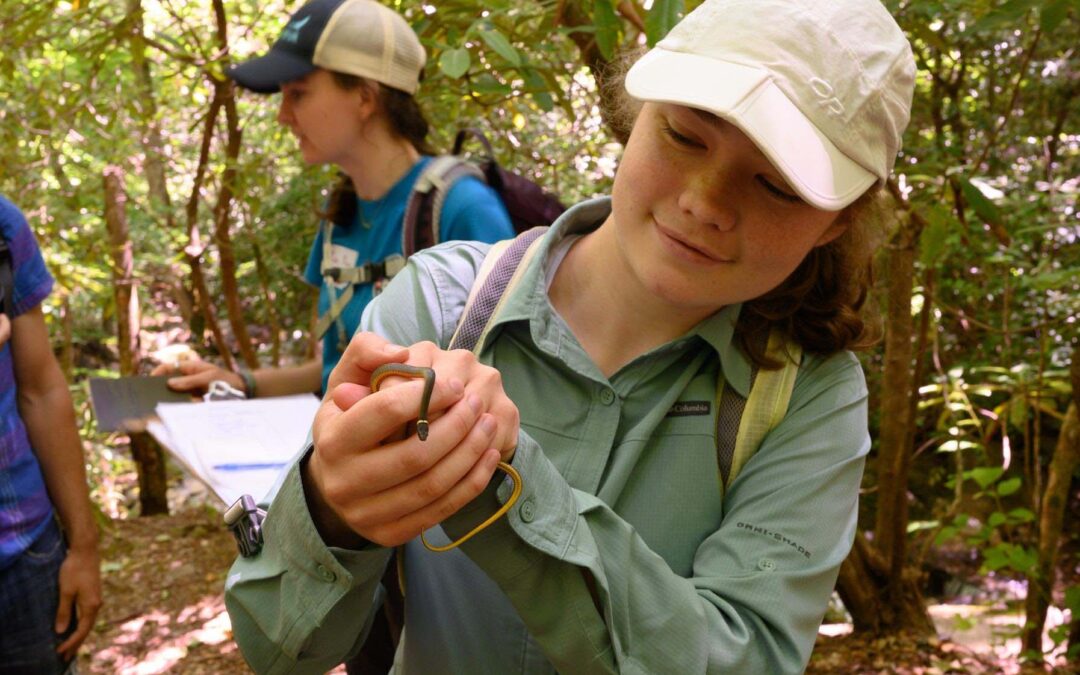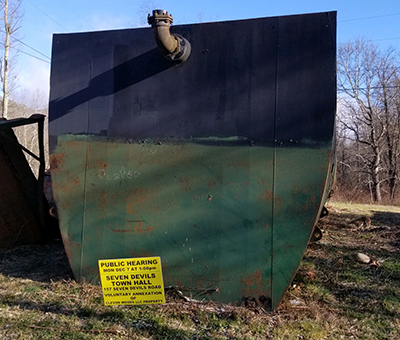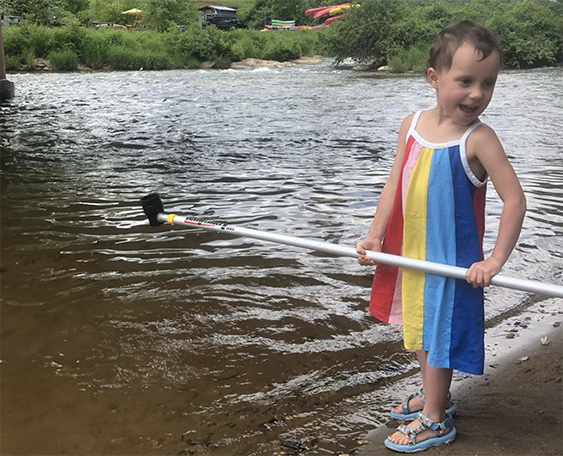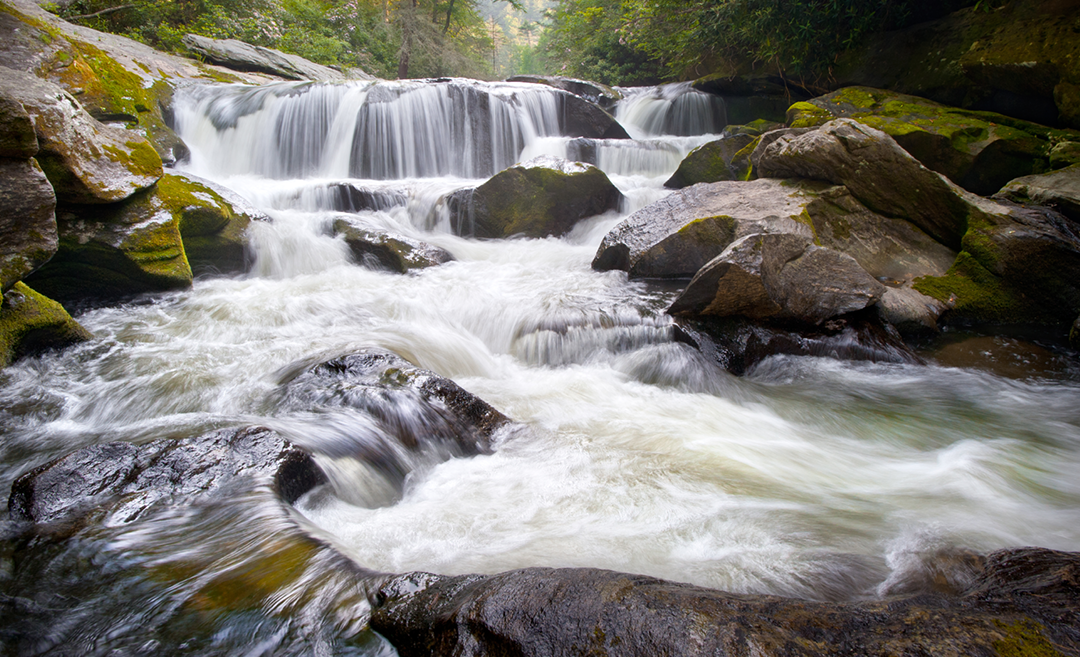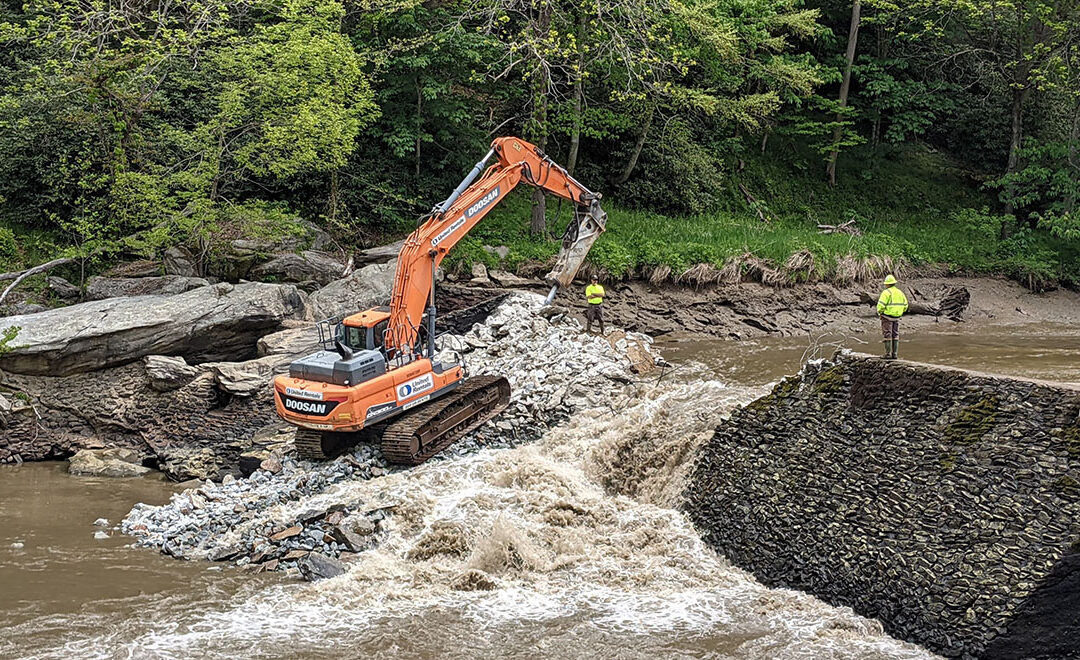
Ward Mill Dam Removal Connects Aquatic Habitat, Makes River Healthier
Ward Mill Dam Removal Connects Aquatic Habitat, Makes River Healthier
Boone, NC — In a huge win for local aquatic wildlife, the Ward Mill Dam just a few miles from Boone, North Carolina has finally been removed. The first dam was constructed at the location in 1890 and improved upon over the years. The mill complex served the community for generations providing electricity, jobs, firewood and building materials. The dam had been an obstacle for local aquatic wildlife for the past 130 years. Now, native fish such as the tangerine darter and threatened salamanders like the hellbender will be reunited and benefit from a reconnected and improved cold-water aquatic habitat.
The Ward Mill Dam Removal project has been a partnership between American Rivers, Blue Ridge Resource Conservation and Development, MountainTrue, the Watauga County Soil and Water Conservation District and the U.S Fish and Wildlife Service. The dam removal was a high priority for experts and biologists and was ranked a top priority among projects by the Southeast Aquatic Resource Partnership and “tier one, priority one” by the North Carolina Aquatic Barrier Assessment Tool.
MountainTrue’s Watauga Riverkeeper, Andy Hill, is excited about the environmental benefits and the opportunity to connect the Watauga River Paddle to create more recreational opportunities. “We’ve greatly improved aquatic habitat and river health, and promoted safe river recreation while honoring the historical and community cultural value of the Ward Mill.”
The Ward family continues their generations-long environmental stewardship by removing this aquatic barrier and graciously surrendering their hydropower license with the Federal Energy Regulatory Commission. While the instream dam structure has been completely removed down to bedrock to reconnect the watershed and allow for sediment transport downstream, the iconic sawmill, historic buildings and complex have been preserved in partnership with the State Historic Preservation Office. Please respect the decision and the privacy of the Ward family.
“We are excited to see the long-term environmental benefits associated with removing the dam, but are also excited about preserving the rich history of the dam complex by documenting and saving the nearby historic buildings,” explains Jonathan Hartsell of Blue Ridge Resource Conservation and Development. “This complex project has been successful from start to finish due to a well thought out gameplan from the project management team, agency partners and, most importantly, the landowners.”
The complex project had to be done carefully due to the delicate biodiversity of the Watauga River and its streams. Dr. Mike Gangloff and Dr. Derek Martin of Appalachian State University led a team of researchers collecting valuable data on pre and post-removal aquatic habitat. This has included sediment flow research, aquatic habitat surveys and numerous nocturnal SCUBA dives searching for elusive nocturnal Hellbender salamander. Sediment flow research and aquatic habitat surveys will better inform future dam removal projects and contribute to the field of knowledge for river restoration.
“Rivers are like a circulatory system, and thanks to this dam removal, American Rivers with our partners celebrate a free-flowing Watauga River which is the lifeblood of a thriving community, healthy ecosystems, and clean water for people and nature,” says Dam Removal advocate and American Rivers Science Program Director and Southeast Conservation Director Erin McCombs.
Removing the Ward Mill Dam reconnects 35 miles of aquatic habitat in the main stem of the Watauga River and 140 miles of streams across the watershed. Dams, though providing benefits in certain circumstances, can also significantly damage rivers. Dams increase water temperature, reduce river flows, reduce the amount of dissolved oxygen available to fish and other species, block the natural flow of sediment and debris, and serve as physical barriers for recreational users such as paddlers and anglers, as well as aquatic wildlife such as fish and amphibians. Additionally, most dams require maintenance and many require removal or rebuilding after 50 years.
The dam deconstruction was performed by the United States Fish & Wildlife Service National Fish Passage Program Aquatic Restoration team and Wildlands Engineering. Project funding was generously provided by the North Carolina Division of Water Resources, Patagonia, the Bonneville Environmental Foundation, Beech Mountain Resort, Hunter Banks of Asheville, and Boone’s Fly Shop.

